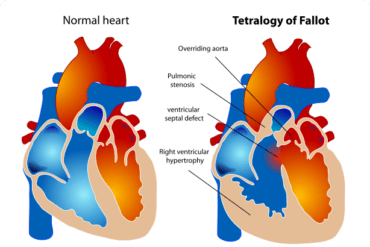Understanding Common Cold Symptoms and Remedies

Table of Contents
- Common Cold: An Overview
- Recognizing Cold Symptoms
- Natural Remedies for Colds
- Over
- the
- Counter Medications
- Prevention and Self
- Care Tips
Common Cold: An Overview
The common cold, also known as a viral upper respiratory tract infection, is a widespread illness that affects individuals of all ages. It is caused by a variety of viruses, with the most common culprit being the rhinovirus. The common cold is highly contagious and can spread through respiratory droplets or by coming into contact with contaminated surfaces. The symptoms of a common cold usually appear one to three days after exposure to the virus. They often include a runny or stuffy nose, sore throat, sneezing, coughing, mild headache, and low-grade fever. In some cases, individuals may also experience fatigue, body aches, or a loss of appetite. These symptoms typically last for about seven to ten days, although some individuals may experience them for a longer duration. While there is no cure for the common cold, several remedies can help alleviate its symptoms. The primary goal of treatment is to manage the symptoms and make the individual more comfortable. Over-the-counter medications such as decongestants, cough suppressants, and pain relievers can provide temporary relief. Additionally, drinking plenty of fluids, getting adequate rest, and using saline nasal sprays can help reduce congestion and soothe a sore throat. Prevention is key in reducing the risk of catching a common cold. Good hygiene practices, such as frequent handwashing with soap and water, can significantly reduce the spread of the virus. Avoiding close contact with infected individuals and disinfecting commonly touched surfaces can also minimize the likelihood of transmission. Some strategies can help boost the immune system and potentially reduce the severity and duration of a cold. These include eating a healthy diet rich in fruits and vegetables, exercising regularly, getting enough sleep, managing stress levels, and staying hydrated. It is important to note that while the common cold is usually a mild illness, certain populations, such as young children, the elderly, and individuals with weakened immune systems, may be more susceptible to complications. In such cases, seeking medical attention is crucial. In conclusion, the common cold is a highly contagious viral infection that affects millions of people each year. While there is no cure, managing the symptoms and practicing preventive measures can help minimize its impact. By understanding the common cold’s symptoms and remedies, individuals can take appropriate actions to stay healthy and prevent its spread.
Recognizing Cold Symptoms
It is important to be able to recognize the symptoms of a common cold, as it will help you seek appropriate remedies and take necessary precautions to prevent the spread of the virus. Some common cold symptoms include:
- Sore throat: A scratchy, dry, or painful throat can often be one of the initial symptoms of a cold.
- Nasal congestion: Your nose may feel stuffy or blocked, making it difficult to breathe properly.
- Runny nose: Excess mucus production leads to a constantly runny or drippy nose.
- Sneezing: Frequent sneezing is a natural response to irritation caused by a cold virus.
- Cough: A persistent cough, either dry or producing phlegm, can be a bothersome symptom of a cold.
- Headache: Many people experience mild to moderate headaches during a cold, often accompanied by sinus pressure.
- Body aches: You may experience muscle soreness, joint pain, or general body discomfort.
- Fatigue: Feeling tired or lacking energy is a common symptom, especially during the early stages of a cold.
- Mild fever: Although not always present, a low-grade fever can sometimes accompany a cold.
If you notice these symptoms, it is likely that you have caught a cold. Remember that these symptoms usually develop gradually and are often milder compared to those of the flu or other respiratory illnesses.
While there are no specific cures for the common cold, plenty of rest, staying hydrated, and over-the-counter medications can help alleviate the discomfort and manage the symptoms. It is important to practice good hygiene by frequently washing your hands to prevent spreading the virus to others. Additionally, avoid close contact with individuals who have cold symptoms to minimize the risk of getting infected.
If your symptoms worsen or last longer than a week, it is advisable to consult a healthcare professional to rule out any complications or underlying conditions.
Understanding the common cold symptoms allows you to take appropriate measures to protect yourself and others, ensuring a speedy recovery.
Natural Remedies for Colds
When it comes to treating the common cold, there are various natural remedies that can provide relief from symptoms and help boost your immune system. While these remedies may not cure the cold, they can help alleviate discomfort and speed up the recovery process. Here are some natural remedies you can try:
- Stay hydrated: Drink plenty of fluids like water, herbal teas, and clear broths to soothe a sore throat and keep your body hydrated. This helps thin congested mucus and prevents dehydration.
- Steam inhalation: Inhaling steam from a bowl of hot water or a warm shower can help relieve nasal congestion and ease breathing. Adding essential oils like eucalyptus or peppermint can provide additional relief.
- Rest and sleep: Getting an adequate amount of rest allows your body to focus its energy on fighting the cold virus and helps in faster recovery.
- Gargle with saltwater: Mixing half a teaspoon of salt with warm water and gargling it can help soothe a sore throat and reduce inflammation.
- Honey and lemon: A warm drink made with honey, lemon juice, and hot water can relieve congestion and soothe a sore throat. Honey also has antimicrobial properties.
- Herbal remedies: Certain herbs like echinacea, ginger, and elderberry have natural antiviral and immune-boosting properties that can help reduce the severity and duration of cold symptoms.
- Proper nutrition: Consuming a balanced diet rich in fruits, vegetables, and immune-boosting foods can provide the necessary vitamins and minerals to support your immune system.
- Warm compresses: Applying warm compresses to the sinuses and chest can help alleviate congestion and chest discomfort.
Remember, while these natural remedies can help manage cold symptoms, it is important to consult with a healthcare professional if your symptoms worsen or persist for a prolonged period. Additionally, maintaining good hygiene practices such as washing hands regularly, avoiding close contact with infected individuals, and covering your mouth and nose while sneezing or coughing can help prevent the spread of the common cold virus.
By incorporating these natural remedies into your routine, you can aid your body in fighting off the common cold and experience relief from its uncomfortable symptoms.
Understanding Common Cold Symptoms and Remedies
The common cold is a viral infection that affects the upper respiratory tract. It is one of the most prevalent illnesses, with millions of people catching it every year. Although most cases of the common cold are mild and resolve on their own, it can still cause discomfort and disruption to daily life. Understanding the symptoms and remedies for the common cold can help in managing the condition effectively.
Common cold symptoms can vary from person to person and may include:
- Sore throat
- Runny or stuffy nose
- Sneezing
- Cough
- Mild headache
- Mild fatigue
- Mild body aches
These symptoms typically appear within one to three days after exposure to the cold virus. The severity and duration of symptoms can vary depending on the individual’s immune system and the specific virus strain causing the infection.
While there is no cure for the common cold, various remedies can help alleviate the symptoms and promote recovery. Some common remedies include:
- Resting and getting plenty of sleep to support the immune system’s ability to fight off the infection.
- Drinking fluids, such as water, herbal tea, or clear broths, to stay hydrated and soothe a sore throat.
- Gargling with warm saltwater to relieve a sore throat temporarily.
- Using over-the-counter saline nasal sprays or rinses to relieve nasal congestion.
- Taking over-the-counter pain relievers, such as acetaminophen or ibuprofen, to reduce fever, headache, and body aches. It is crucial to follow the recommended dosage and consult a healthcare professional if necessary.
- Using a humidifier or taking steamy showers to help ease congestion and moisten the nasal passages.
It is essential to rest and avoid spreading the virus to others. Practicing good respiratory hygiene, such as covering the mouth and nose while coughing or sneezing, can help prevent the spread of the common cold.
If symptoms worsen or persist for an extended period, it is advisable to seek medical attention. This is especially crucial for individuals with pre-existing health conditions, weakened immune systems, or severe symptoms.
In conclusion, understanding common cold symptoms and remedies can assist in managing the condition more effectively. By recognizing the symptoms early on and employing appropriate remedies, individuals can alleviate discomfort, promote recovery, and prevent further spread of the virus. Remember to prioritize rest, hydration, and good hygiene to support the immune system’s fight against the common cold.
Common Cold Symptoms
The common cold is a viral infection that affects the nose and throat. It is characterized by a variety of symptoms that can vary from person to person. Understanding these symptoms can help in identifying and managing the common cold effectively. Here are some common symptoms associated with a cold:
- Runny or stuffy nose: A congested or runny nose is one of the early signs of a cold. This occurs when the virus infects the nasal passages, causing excessive mucus production.
- Sneezing and coughing: Sneezing and coughing are common symptoms as the body tries to clear the virus or irritants from the nose and throat.
- Sore throat: A scratchy or sore throat is often experienced as inflammation and irritation occur due to the viral infection.
- Fatigue: Feeling tired and lethargic is common during a cold, as the body is fighting off the infection.
- Mild headache: Some individuals may experience a mild headache due to nasal congestion and sinus pressure.
- Mild body aches: Muscle aches and pains can accompany a cold and are usually mild in intensity.
- Low-grade fever: A slight increase in body temperature may occur during a cold, but it typically remains below 100.4deg;F (38deg;C).
Common Cold Remedies
While there is no cure for the common cold, the symptoms can be managed with various remedies. These remedies aim to alleviate discomfort and support the body’s natural healing process. Here are some common cold remedies:
- Rest: Getting plenty of rest allows the body to focus on fighting off the infection and speeds up the recovery process.
- Hydration: Drinking fluids, such as water, herbal tea, or warm broth, helps prevent dehydration and soothes a sore throat.
- Saltwater gargle: Mixing half a teaspoon of salt in warm water and gargling it can provide temporary relief for a sore throat.
- Nasal saline sprays: Using saline sprays or rinses can help to clear nasal passages, reduce congestion, and relieve a runny or stuffy nose.
- Over-the-counter medication: Non-prescription medications like decongestants, cough suppressants, and pain relievers can help alleviate symptoms. However, caution should be exercised when using these medications, especially in children.
- Warm compress: Applying a warm compress to the forehead or sinuses can help alleviate headache and sinus pain.
- Proper hygiene: Practicing good hygiene, such as frequent handwashing and covering the mouth and nose while coughing or sneezing, helps prevent the spread of the virus.
It is important to note that if symptoms worsen or persist for an extended period, it is advisable to seek medical attention, as it could indicate a more serious condition. Understanding common cold symptoms and having knowledge of effective remedies can help individuals manage this common viral infection more effectively.
Counter Medications
When it comes to relieving common cold symptoms, counter medications can provide quick relief. These medications are available over the counter without a prescription, making them easily accessible for anyone suffering from the common cold. Here are some common over-the-counter medications that can help alleviate cold symptoms:
- Pain relievers and fever reducers: Nonsteroidal anti-inflammatory drugs (NSAIDs) such as ibuprofen or acetaminophen can help reduce fever, relieve headaches, and ease body aches associated with the common cold. Be sure to follow the recommended dosage instructions.
- Decongestants: Decongestant medications can help relieve nasal congestion, making breathing easier. They work by shrinking swollen blood vessels in the nasal passages. However, they should not be used for more than a few days as prolonged use may lead to rebound congestion. Consult a healthcare professional before using decongestants, especially if you have certain medical conditions.
- Cough suppressants or expectorants: If you are experiencing a persistent cough, cough suppressants can help provide temporary relief. They work by reducing the urge to cough. Expectorants, on the other hand, help loosen and thin mucus, making it easier to expel. Read the labels carefully to determine which option is appropriate for your specific cough.
- Antihistamines: Antihistamines can help relieve sneezing, itching, and a runny nose caused by allergies associated with the common cold. However, they may also cause drowsiness and should be used with caution, especially when driving or operating machinery.
- Throat lozenges: Sucking on throat lozenges can temporarily soothe a sore throat, providing relief from discomfort.
It’s important to note that while counter medications can alleviate symptoms, they do not cure the common cold. Rest, hydration, and proper nutrition play crucial roles in boosting the immune system and aiding the body’s natural healing process. If symptoms worsen or persist for an extended period, it is advisable to consult a healthcare professional for further evaluation and guidance.
Prevention
To prevent the common cold, it is important to take certain steps to reduce your risk of contracting the virus. Here are some preventive measures you can take:
- Wash your hands frequently with soap and water for at least 20 seconds.
- Avoid close contact with individuals who have a cold or flu-like symptoms.
- Cover your mouth and nose with a tissue or your elbow when coughing or sneezing, and dispose of used tissues properly.
- Avoid touching your face, especially your eyes, nose, and mouth, as it can transfer the virus from contaminated surfaces to yourself.
- Clean and disinfect frequently-touched objects and surfaces, such as doorknobs, light switches, and cell phones.
- Maintain good overall health by getting enough sleep, eating a balanced diet, and exercising regularly.
- Consider getting a yearly flu shot, as it can help prevent cold-like symptoms caused by the influenza virus.
Self-Care Remedies
If you do catch a cold, there are several self-care remedies that can help alleviate your symptoms and promote a quicker recovery. Keep in mind that these remedies may not cure the cold, but they can make you feel more comfortable. Here are some self-care tips for managing common cold symptoms:
- Stay hydrated by drinking plenty of fluids, such as water, herbal tea, and clear broths, to help thin mucus and prevent dehydration.
- Get ample rest and sleep to support your immune system’s ability to fight off the virus.
- Gargle with warm saltwater to soothe a sore throat.
- Use saline nasal sprays or rinse with a neti pot to relieve nasal congestion and clear out mucus.
- Take over-the-counter pain relievers, like acetaminophen or ibuprofen, to reduce fever, relieve headaches, and alleviate body aches.
- Use cough suppressants or expectorants to manage cough symptoms, depending on the type of cough you have.
- Try using a humidifier or breathing in steam from a hot shower to ease congestion and moisturize irritated nasal passages.
- Eat nutritious foods packed with vitamins and minerals to support your immune system.
- Avoid smoking and secondhand smoke, as it can aggravate your symptoms and prolong your cold.
Remember, it’s essential to consult a healthcare professional for proper diagnosis and treatment if your symptoms worsen or persist for an extended period.
Care Tips
When it comes to coping with the common cold, there are several care tips that can help relieve symptoms and speed up your recovery. Below are some effective remedies to consider:
- Stay hydrated: Drink plenty of fluids, such as water, herbal tea, and warm liquids like soup or broths. Proper hydration helps thin mucus and soothes sore throat.
- Rest and sleep: Take adequate rest to allow your body to recover. Sleep is crucial for your immune system to fight off the virus causing the cold.
- Use saline nasal drops: Nasal congestion is a common symptom of a cold. Saline nasal drops can help clear your nasal passages and provide relief.
- Gargle with warm saltwater: Mix half a teaspoon of salt in warm water and gargle to soothe a sore throat. It can also help reduce inflammation and kill bacteria in your throat.
- Use a humidifier or steam: Dry air can further irritate your nasal passages and throat. Adding humidity to the air with a humidifier or inhaling steam can bring relief and reduce congestion.
- Over-the-counter medication: Non-prescription cold remedies can help alleviate symptoms temporarily. Look for cough suppressants, decongestants, and pain relievers suitable for your specific symptoms.
- Try natural remedies: Certain natural remedies such as honey, ginger, garlic, and herbal teas can provide relief from cold symptoms. However, seek medical advice before attempting any natural remedies, especially if you have underlying health conditions.
- Practice good hygiene: Wash your hands regularly with soap and water to prevent the spread of germs. Avoid touching your face, especially your eyes, nose, and mouth.
- Boost your immune system: Eat a balanced diet rich in fruits, vegetables, and whole grains. Regular exercise, stress reduction techniques, and sufficient sleep can also strengthen your immune system and prevent future colds.
Remember, while these care tips can help manage cold symptoms, it’s essential to consult a healthcare professional if symptoms worsen or persist for more than a few days. They can provide a proper diagnosis and recommended treatment options based on your individual condition.


























